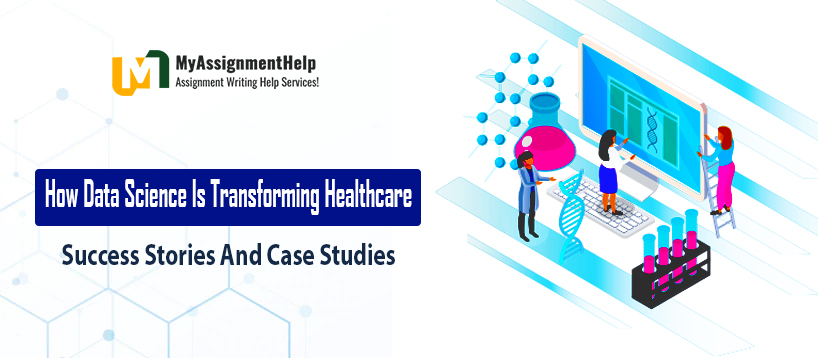Data science has emerged as a game-changer across various industries, and healthcare is no exception. With the exponential growth of data and advancements in technology, healthcare providers are now leveraging data science to revolutionize patient care, enhance operational efficiency, and improve overall outcomes. In this blog post, we will explore some success stories and case studies that highlight the transformative power of data science in healthcare.

Data Science in Healthcare: A Paradigm Shift:
Traditionally, healthcare has relied on reactive and fragmented approaches to diagnosis and treatment. However, the integration of data science has paved the way for a more proactive and personalized approach. By analyzing vast amounts of healthcare data, including electronic health records (EHRs), medical imaging, genomics, and wearable devices, data scientists can uncover valuable insights that help improve decision-making and patient care.
Case Study 1: Predictive Analytics for Early Disease Detection:
One of the remarkable success stories in healthcare data science is the use of predictive analytics to identify patients at risk of developing chronic diseases. By analyzing patient data, such as medical history, demographics, lifestyle factors, and genetic markers, data scientists can build sophisticated models that predict the likelihood of diseases such as diabetes, cardiovascular diseases, and certain types of cancer. Early identification allows healthcare providers to intervene proactively, providing targeted interventions and reducing the burden on patients and the healthcare system.
Case Study 2: Precision Medicine and Genomic Analysis:
The field of genomics has seen tremendous advancements in recent years, and data science plays a crucial role in making sense of the vast amount of genetic data available. By integrating genomic information with clinical data, data scientists can identify genetic variations that contribute to disease susceptibility and drug response. This enables the development of personalized treatment plans, known as precision medicine, which takes into account an individual’s unique genetic makeup. This approach has shown promising results in the treatment of cancer, rare diseases, and pharmacogenomics.
Case Study 3: Healthcare Resource Optimization:
Data science is not limited to improving patient care alone but also plays a significant role in optimizing healthcare resources. By analyzing data on hospital admissions, patient flow, staff schedules, and resource utilization, data scientists can identify bottlenecks and inefficiencies in the healthcare system. This knowledge allows healthcare administrators to make informed decisions about resource allocation, staffing levels, and workflow optimization, ultimately improving the quality of care and reducing costs.
Conclusion:
The integration of data science into healthcare has revolutionized the way patient care is delivered. From predictive analytics for early disease detection to precision medicine and healthcare resource optimization, data science has proven to be a powerful tool in transforming the healthcare landscape. By leveraging the vast amount of healthcare data available, data scientists can uncover valuable insights, improve decision-making, and enhance patient outcomes.
If you are a student looking to explore the world of data science in healthcare, you might find it beneficial to seek Data Science Assignment Help. Professional assistance can guide you through complex concepts and provide valuable insights into the real-world applications of data science in the healthcare domain. So, don’t hesitate to reach out and avail yourself of the expertise that can help you excel in your assignments and projects.
In conclusion, data science has opened up new possibilities for healthcare, enabling proactive care, personalized medicine, and optimized resource allocation. With continuous advancements in technology and the increasing availability of data, the transformative power of data science in healthcare is only expected to grow in the future.





